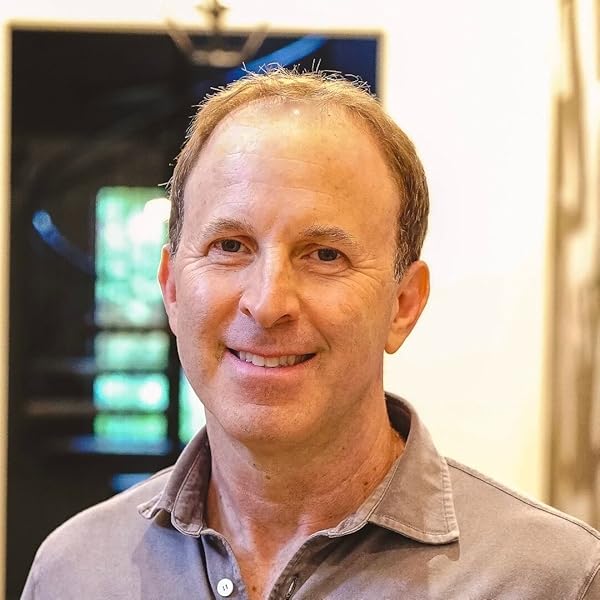The Sustainable Family Office with Scott Saslow
What does it take for a family office to transition from one generation to the next? Scott Saslow talks about the role impact investing plays in that process!
Listen to us On
About the Episode
We focused on building a sustainable office, the role impact investing can play in that process, why a focus on the social and emotional aspects of business can lead to greater success, and why so few family offices make it from one generation to the next, with Scott Saslow, Entrepreneur, Investor, and author.
Listen to hear a difference-making tip on the value of a broad, diverse network!
You can learn more about Scott at OneWorld.Investments, and LinkedIn.
Get your copy of Building a Sustainable Family Office here:
Did you get anything out of this episode? Do us a solid and leave a review:
https://ratethispodcast.com/alignedmoneyshow
Learn more and engage at MoneyAlignmentAcademy.com, Twitter, LinkedIn, Instagram, YouTube and Facebook.
Buy George G a coffee (he loves coffee)
https://www.buymeacoffee.com/lifeblood
Have George G speak
https://moneyalignmentacademy.com/speaking/
Financial literacy and wellness for individuals, families, and companies
https://moneyalignmentacademy.com/
Find George G’s books here
The Aligned Money Show is the podcast for Money Alignment Academy, copyright 2024.

George Grombacher
Host

Scott Saslow
Guest
Episode Transcript
eorge grombacher 0:01
Scott, to get us started, give me two truths and a lie please.
Scott Saslow 0:06
Okay. Number one, I am an early stage investor. Number two, I am a famous rock drummer. And number three, I am an author,
george grombacher 0:16
okay, I like it. An early stage investor. You are a famous rock and roll drummer, and you are an author. Well, I already know that you’re an author, so we can cross that one off the list.
Scott Saslow 0:31
Damn. You did your homework.
george grombacher 0:35
And the choose between the two? I don’t know. Are there a lot of, a lot of successful rock and roll stars who are also authors? I don’t know you might be the first, but I’m gonna guess seem to go together. They don’t. It’s like lamb, lamb and tuna fish as as as the single. So I’m gonna guess that you are not a famous rock and roll drummer.
Speaker 1 0:58
Okay, that’s correct, but if you take out the famous part, then it’s a truth. I want you to know that well, it
george grombacher 1:04
doesn’t bring me any happiness. That I was correct does nothing for me. So you are, you are, in fact, a drummer.
Scott Saslow 1:12
Tell me, I love drumming. Yes, been drumming since I was like 13, and still in a band which meets once a year. You know, we’re all distributed across the globe, South America, including and but yes, once a year we get together and rock up.
Unknown Speaker 1:29
Okay,
Speaker 1 1:30
it’s called sandeeps jacket, because I know you’re about to ask the name of the band, sandeep’s
george grombacher 1:33
jacket. Yes, awesome rock and roll. Band name and What? What? What kind of music do y’all play? Oh,
Speaker 1 1:40
we played silly cover songs. Mostly, we did write our own music. We actually came up with a, you know, a full length recording when we first met, which was in grad school in the late 90s. But it’s a lot of like, 80s and 90s covers, you know, just jumping around having fun, ACDC, talking heads, the good stuff. Fighters, yeah, just
george grombacher 2:04
good. I like it. So when is? When is the next reunion for Sandeep jacket? I
Speaker 1 2:10
think in January, January, February, we actually want to get back in the recording studio we had recorded, you know, again, the CD back when there was the CDs in the late 90s, and we once got together back in the studio in the bassist lives in San Diego, so he found some great studio space a couple summers ago, and now in Colorado, we hope to do some recording this coming January or February.
george grombacher 2:36
That sounds awesome. Yeah, I love it, all right. And you’re obviously an investor, and maybe we’ll talk a little bit. Little bit about that today. But what is all about the band? Yeah, well, we can, we could that? That is up to you. So what is, whatever is top of mind for you right now, that that’s, that’s what I want to hear about. So what is, what, in fact, is top of mind,
Speaker 1 2:57
sir, what is top of mind? I think top of mind, and hopefully your audience will find somewhat interesting and helpful. Is I’m in the early stages of designing the fund 2.0 for our impact investing work. We had a fund 1.0 that I started in 2017 roughly, and this is goes under the name of one world impact investments. It’s a family office fund, meaning it’s just family capital. We haven’t brought outside capital in. And the objective of the fund is to support impact investing. We’re making investments into for profit companies that have either a social or environmental mission, and we want to support them in the very early stages. So we’re typically writing modest checks at the pre seed or seed stage. We’ve done about 30 of these to date, 30 unique companies. About total toil financing is about 60, because our model is to do follow ons, and some, thankfully, have moved on to Series B Series C, so it’s really exciting, but I want to think about a fund 2.0 which has the same objective in terms of who we’re investing in. I want it to be a more collaborative approach with other investors. Still don’t want to kind of cross the line and manage outside capital, but we get a lot of investors and other entities who are interested in this impact investing early stage. And so I want to figure out a way that we can kind of move more capital. That’s really the objective. We can put more capital to work, not just ours, but others. I think we can create more impact.
george grombacher 4:38
What are some of the big pieces of learning, learnings from 1.0
Speaker 1 4:45
Yeah, great question. Look, I think our thesis going in, and I think it’s proved out is it’s all about people. You know, we like to say we invest in people, not products, even though most of our company. Is our kind of product and tech based products at that. I come from a background of talent management. Before I started one world, I was in the talent management field. That means, you know, kind of like learning and development and training and working specifically with senior executives and big companies. And that was kind of my world and thinking about talent in strategic ways. And I think, you know, probably in most types of organizations and stages, but certainly in early stage startups, talent is a huge factor. And I’d much rather have a great, you know, leader or CEO with a okay idea than the reverse. And so part of our thesis was, well, you know, sure, let’s give them money. That’s ultimately what they need to keep the lights on, but let’s see where we can help them with other support and kind of talent services. So I think that’s, you know, to your question, that’s one of the big learnings is, you know, talent is a huge driver. The other thing, I mean, look, everyone was affected by covid. And certainly, you know, it’s, it’s always, you know, as they say, it’s lonely at the top, especially when you’re running a startup. It was really hard on these entrepreneurs during covid. So what we, you know, my colleague, Angie Mertens, and I, we provided a lot of support and training to our CEOs. We had something called the CEO network to provide training, kind of a support group, if you will. We thought when we first designed it that it was about the blocking and tackling. How do you build a business? How do you, you know, raise money? How do you build, then ship your first product during covid, it really became more of an emotional support group. People were just incredibly burned out. And CEOs, on one hand, have to be kind of tough and, you know, stiff upper lip and whatnot, and show the team that they’re strong and they’re going to persevere. But the reality is, you know, their their own worlds were affected. I mean, whose world wasn’t by covid, and then certainly their team. So it was a particularly challenging time to run a startup. It seems that there’s some kind of green shoots out there. Things are getting better, but I guess that’d be learning. Number two for any investor out there, if you’re working with early stage companies is, you know, don’t, don’t discount the important of the kind of social, emotional parts of the equation. If you’re, if your CEO isn’t healthy, emotionally and whatnot, they’re not gonna, they’re not gonna persevere. And startups, it’s a game of perseverance, in my view.
george grombacher 7:39
Yeah, I appreciate that so many different ideas running through my head as you were talking and it certainly all does make sense. Oftentimes, we think about entrepreneurs and CEOs as sort of, this, this, this, this ideal person who, to your point, stiff upper lip, doesn’t care the Travis kill annex or TK or whatever. His name was, the Uber guy, and he wasn’t that in touch with his feelings, at least it appeared that way. But he’s an outlier, I would imagine. So the rest of them are just human beings, and they suffer from loneliness and burnout. And so how do you actually support them
Speaker 1 8:15
absolutely and and especially, you know, in our world, we’re big fans of supporting female entrepreneurs. About half our entrepreneurs are female, and that’s, that’s not, you know, a quota for us, we work extra hard to find really talented, really qualified CEOs, irrespective of gender. We think are going to win. But the reality is, they have additional concerns and challenges as it relates to family, and some of the family elements, of course, fall on them uniquely. So it’s being, you know, kind of, one of our female CEOs told me, gosh, Scott, I mean, you’re the only one that, like, asks about my family and the fact that I have a kid, and it seems investors just want to, like, ignore that, or that’s like this taboo topic, so yeah, what I would say to other investors is, you know, you’re investing in people, human beings, and for both moral reasons, like you want to support them and be a good colleague to them, and then obviously, just business reasons, right? You want your everyone you’re doing business with to be healthy and to be happy, and with that comes, you know, prosperity. So lot of ways to look at it, but I think that’s that’s something that some investors are, you know, sometimes gloss over the human element of what they’re investing in.
george grombacher 9:34
Yeah, certainly it makes sense that there is a human case for doing it, but then also a business case for doing it as well. And when you say it out loud, it certainly it sounds right, and it certainly does make sense that being said, it’s a relatively new thing, and you have people go, nobody asked me about this. And when you invite a CEO to engage in. If it’s a community or a meeting or a round table, I imagine there’s a little bit of since it’s confusing or new, is there pushback? How do you sort of bridge that gap?
Speaker 1 10:12
How do we engage with the CEOs to help them feel comfortable opening up and whatnot? Yeah, yeah. It’s a good question. I mean, I like to believe that. Number one, we have kind of a reputation of being that way. That’s how we roll. We’re a little bit different than a lot of other, you know, kind of Bay Area early stage investors. But number two is, look, I think it’s just, you know, we lay out what’s important to us as investors. One of the first things I’ll say to an entrepreneur when I’m meeting a potential candidate for investment is you should be really picky about who you let onto your cap table. If you’re not, that tells me you haven’t done a good job of kind of creating, you know, demand you do have, you know, if I believe you have something special, then I’m going to tell you, Hey, be really guarded and careful about who you let in and make sure, you know, I mean, look, it is probably still the case that in Silicon Valley, money is a bit tight compared to what it’s been over the last, you know, decade when the faucets were blowing very, you know, widely open and whatnot. But even if it’s still relatively tight, I do believe just a check itself can be a bit of a commodity. So again, a smart CEO is gonna be very thoughtful. I mean, you’re getting into partnership with your investors. Don’t, don’t think like, you know, Oh, thanks for the money. And, yeah, I’ll keep you updated with a quarterly, you know, newsletter. I mean, your business partners, and so be smart about that. And so we try to hammer that home, so they see where we’re coming from and whether or not they choose us as investor. But they also, they take that knowledge and they build, you know, a good cap table around that thinking.
george grombacher 11:57
So entrepreneurs, oftentimes there’s a need for capital, you are a provider of that capital, but in the second iteration of of the fund, you’re looking to take a more collaborative approach. So is that really what we’ve been talking about, or how is that going to actually manifest this collaborative approach? Yeah,
Speaker 1 12:20
I don’t know. Is there real early in the journey, I’m happy to report back. But what I do know is, and we can talk about family offices, maybe specifically as one investor type, there’s, there are only one of many investor types, but within the family office world, there’s a lot of family offices very keen to do more in impact investing. And I think the way that they, at least many, have been successful in dipping their toe and starting that journey is an early stage impact investing. You can invest sustainably or with impact across all asset classes, public and private. But many people do say, okay, a real logical place is early stage entrepreneurship. Among the reasons that can be a really good idea for a family office. One of the biggest things that family office principals think about is, how do I engage the next generation? And often that next gen is really excited about entrepreneurship, you know, kind of writ large, and then specifically about those types of early stage companies that are achieving some sort of social or environmental benefit. So that’s something, you know, we to the extent we want to get into the book. I’m happy to go a little bit more detail, but that, I think, is really interesting. And so then to your question, how do you how do you do that in a collaborative way? I haven’t figured that out yet. I will report back. But I know that a lot of other family offices are very keen. You look at the research around, you know, kind of the percent of family offices that are investing sustainably or with impact and and the gap between the ones that are today and the ones that would like to be there’s actually a pretty big gap, which I believe is in part, a knowledge gap, and that’s a little bit what I’m trying to do in the work I do in the book, and one has kind of filled that knowledge gap, um, so yeah, the we’ll, we’ll see how we kind of operationalize that. Well, I
george grombacher 14:12
think intellectually, it certainly, it certainly makes sense, and you can correct me where, where I’m wrong here. But one of the challenges I understand that you are working to address through the book and through your work in general, is, how do you keep future generations engaged? And the idea of entrepreneurship is appealing and exciting to multiple generations, you know, up, up and down the the the age spectrum and for sure. So it’s an opportunity to to engage, and these are probably folks that have a desire to pursue sustainability or other impact type investing. So absolutely,
Speaker 1 14:52
yeah, we saw that kind of in spades. In writing the book. The book is a bit my story, in creating and recreating. A couple times a family office, but it’s also that of we had 24 contributor, contributors to the book of a pool of, I think, over 30 that I actually interviewed. So you know, what I was looking for was the definition of sustainability around a family office, more around just its longevity, its ability to be a robust organization, its ability to stand the test of time, not necessarily supporting sustainable investing, but I do believe that can be one of the the tactics to make it this kind of larger sustainability. And yes, what we saw was, you know, managing family offices is actually quite tricky. One has to know a lot about a lot of different subjects, and that’s very hard. And there are some principles of family offices, the owners who maybe they’re the wealth creators, they’re very savvy business people. Maybe they’re the second or third gen some, maybe they’re connected with business, or maybe they don’t work in business. Maybe they don’t even work in the family office, if there’s this office set up. But I think it’s really important that they have exposure to at least kind of the the baseline level of understanding of business and finance, and they will be able to, therefore, you know, both engage with their family office in a way that’s aligned with whatever they’re doing. Right? It’s not to say that if you are a principal in the family office, you must work in the family office, or you need to be in connected to finance. You don’t have to be you could be an artist. You can be a healthcare worker. You can be, you know, whatever it is your passion. But to understand this family capital, how to manage it, and how to, you know, we like to say, manage the managers. You don’t have to be the expert. You don’t have to be calling the trades, but know how to read a report and know how to swap out a vendor when you need to do that. That will lead to a sustainable family office, and that’ll make you happier, and that’ll help you. You know, look, what a tremendous privilege to have a family capital from a family office, and the individuals should enjoy their freedom to do whatever they want to do. That’s not for anyone to say, but don’t forget, you have this tremendous privilege and set of resources, and those can probably help you in your journey again, whatever your chosen field and passion may be, I
george grombacher 17:29
think that’s really well said, and it certainly makes sense, you know, and that experience has borne out that it’s tough to keep these things together, just like it’s tough To keep a family business together over the course of two or three generations. Why wouldn’t it be challenging to keep a family office together as well? So trying to discover the right levers to pull and the right ways to keep people engaged, I’m sure, is a never ending puzzle and problem that you’re working on solving, and that’s the reason you wrote the
Speaker 1 17:58
book. Yeah, indeed. And I’ll, I can just give you kind of a 32nd overview. The big headline there is the existing model that family office principals are using tend to use to manage their family office, I would argue, is not sustainable. You look at the research, about 30 or 40% of family offices do not pass from one generation to the next. So when you do come across a third or fourth generation family office that’s actually incredibly rare. I mean, they’ve actually done some incredible things to get there. And what I what I lay out in the book, is kind of a, you know, has five elements to it, a new framework, if you will, that I think the successful family offices, those that have endured the test of time, are deploying, and it starts with the mindset that the principles bring to this to this opportunity, it’s establishing a mission. Many family offices have put a lot of thought into what is the actual mission, codifying that like writing it down and living it. It involves the structure that you choose. There’s a lot of, you know, infinite number of ways to build a family office in terms of structure and entities, talent. I mentioned talent earlier. Thinking about talent a very strategic way. It’s incredible to me. You look at the research on succession planning in family offices, only about a third of family offices have a succession plan. I mean, some of these, you know, family offices have assets that that rival, you know, kind of GDP of small countries and to not have a very professional and well articulated succession plan is just a huge risk, not just to the family, right? That’s another point I’d like to make. It’s not just, Oh, what a shame some wealthy people you know kind of stumble that you know hit their toe family offices are huge investors and. Startups, about one in $10 of all startups come from family offices. Family Offices are enormous philanthropic givers. Average family office gives $11 million so I mean, you know, for better or worse, kind of the fate of the broader society is tied into the health of family offices. And so that’s what I get excited about, is, how do we make these offices more robust? How do we make them increase their impact, both financially, but also, you know, kind of more broadly, if it’s if they exist to support philanthropy or whatever their cause may be wonderful. How do you do that with your whole capital stack? So those are some of the things we get into in the book. I love it.
george grombacher 20:40
Well, Scott, given us a lot, but we’re ready for your difference making tip. What do you have for us? Difference
Speaker 1 20:46
making tip? Boy, you know, I’d say it probably especially for those that are in the family Office ecosystem, you’re somehow connected, you’re their principal, or you support them as an advisor. Is just broaden your network. What I am finding is there are a large number of different networks out there. Some are kind of well known, you know, there’s one called Triple C Alliance, which is a well known family office network. Some are more regional, you know, kind of the Houston based family office professionals. But those networks are huge. And if you are a principal of a family office, I think learning and hearing from other principals who are not trying to sell you something, right? They’re just in your same shoes. They’re capital owners, and they’re trying to figure this all out. That’s really important, that’s that’s a big deal, so work to increase your network. Learn from other family offices what’s working, what’s not and ultimately craft one that helps you get from where you are to where you want to go. Well, I
george grombacher 21:48
think that that is great stuff that definitely gets a Come on, Scott, thank you so much for coming on. Where can people learn more about you? How can they engage and where can they get their copy of building a sustainable family office? Yeah,
Speaker 1 22:01
thank you, George for the opportunity here. So our website at oneworld is oneworld dot investments, the book is on Amazon and other book retail sites online. And certainly, if anyone wants to reach out to me personally on LinkedIn is probably the best way. And I’m just grateful for the opportunity and hope this was helpful for you and your your listeners, Yeah,
george grombacher 22:24
most definitely. If you enjoyed this much as I did, show Scott your appreciation. Share today’s show with a friend who also appreciates good ideas. Go to one world, dot investments and check out the funds and everything else that Scott’s been working on and talking about today. Pick up your copy of building a sustainable family office on Amazon. I’ll link that in the notes, and you can find Scott saslow on LinkedIn. I’ll certainly link that as well. Thanks again. Scott pleasure, George, thank you. Finally, friendly reminder, it’s never going to be anybody more interested in your financial success than you are, so act accordingly. You.
More Episodes
Beyond the Bank Balance: Cultivating a Soulful Relationship with Money
You don’t need to be a Wall Street shark or a personal finance guru to develop a healthyrelationship with money. In fact, most of us start with little more than a jumble of beliefsand habits passed down from our families. But if you’ve ever found yourself stressed at...
How Using AI Can Help You Gain Clarity Into Your Financial Future
In today's fast-paced, data-driven world, achieving financial clarity can feel like an overwhelming task. With numerous financial decisions to make—from budgeting and investing to retirement planning and debt management—it's easy to feel lost in the complexity of it...
How AI Can Help Improve Your Personal Finances
1. Smarter Budgeting and Expense Tracking AI-powered tools like Mint, You Need a Budget (YNAB), and PocketGuard can automatically categorize your expenses, track your spending in real time, and even alert you when you’re about to exceed your budget. These tools...
Trust and Confidentiality When Using AI as Your Financial Coach: Safeguarding Your Sensitive Data
In the digital age, artificial intelligence (AI) has revolutionized many aspects of our lives, including personal finance. AI-powered financial tools have become a go-to resource for budgeting, investing, debt management, and even retirement planning. But as more...
How AI Can Be Your Personal Financial Coach: Unlocking the Future of Financial Success
In today’s fast-paced world, managing your finances can feel overwhelming. With so many options for saving, investing, and budgeting, it can be hard to know where to start or how to stay on track. Fortunately, advances in technology—specifically Artificial...
How Technology and AI Are Benefiting Investors and Consumers in Securing Their Personal Financial Futures
In recent years, the rise of technology and Artificial Intelligence (AI) has profoundly transformed the financial landscape. These advancements have empowered investors and consumers to make more informed, efficient, and personalized decisions about their financial...
10 Things New Parents Should Be Thinking About Regarding Their Personal Finances
Becoming a parent is one of the most joyful and transformative experiences in life. However, it also brings new financial responsibilities and challenges. If you’re a new parent or expecting, it’s crucial to plan ahead to ensure your family’s financial security. Here...
10 Things Newlyweds Should Be Thinking About Regarding Their Personal Finances
Marriage marks a new chapter filled with excitement and partnership. While love may be the foundation, financial harmony is key to building a stable and happy life together. To set yourselves up for success, here are 10 essential financial topics that every newlywed...
Financial Tips for New Parents: Building Stability and Security for Your Growing Family
Becoming a parent is one of life’s most rewarding experiences, but it also brings significant financial challenges. From diapers to daycare, the costs add up quickly. Whether you’re a first-time parent or adding to your family, managing finances wisely is crucial for...
Join the show.
Interested in being on the show? Tell me a little bit more about you and what you’d like to talk about!














